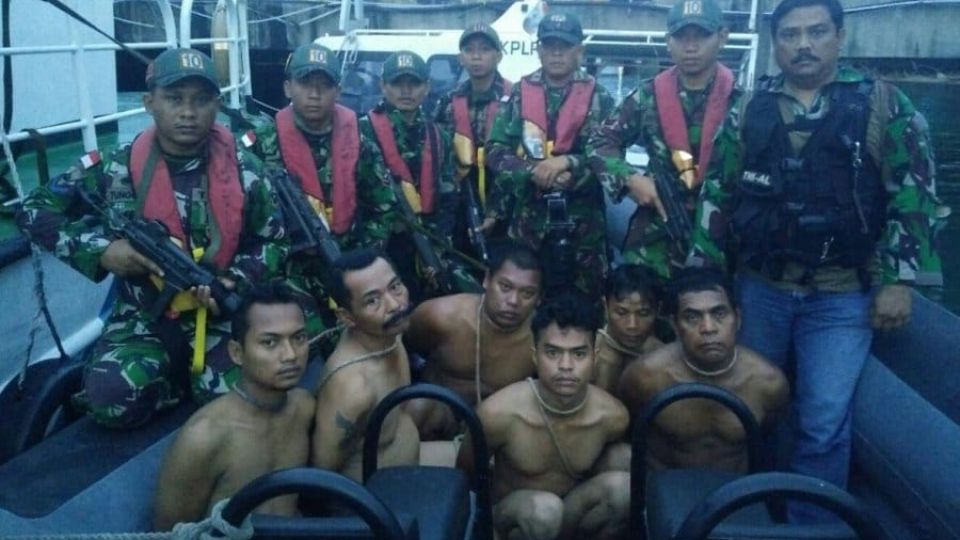May 5, 2023
JAKARTA – The spike in maritime piracy incidents over the last three months in the Strait of Malacca, one of the world’s busiest commercial sea-lanes, is alarming at a time of simmering tensions in the adjacent South China Sea. Unchecked piracy can give major powers like China and the United States justification to boost their naval presence in and around the strait, only to put regional security at risk.
As Indonesia is widely deemed to be a source of the piracy in the Malacca Strait, the government needs to intensify collaboration with its two littoral neighbors, Malaysia and Singapore, in the fight against armed robbery in the waterway.
For its part, Jakarta has stepped up its measures to eradicate maritime piracy, though this is by no means easy because the criminals are suspected of having the support, if not protection, of unidentified parties, including rogue elements within the Indonesian Navy. Such allegations lack proof, and have therefore been flatly denied.
ASEAN leaders will likely discuss the latest situation in the Malacca Strait during their summit on May 9-11 in Labuan Bajo, East Nusa Tenggara. They are well aware that any security disturbances in the strait will immediately draw international attention, as 40 percent of global commodities, particularly oil and gas, are transported through the narrow waterway.
A meeting of senior officials was held in Singapore at the end of April, and a ministerial meeting will follow later this month to discuss the possibility of a joint operation in the strait.
From January to March of this year alone, 25 incidents of armed robbery against ships in the strait were reported, up 9 percent year-on-year.
The Malacca Strait Council (MSC) held the third Extraordinary Session of the Implementation Committee Meeting on the Joint Hydrographic Survey of the Strait of Malacca in Singapore from April 26 to 27. MSC members Indonesia, Malaysia and Singapore also invited Japan to the meeting, which discussed improving maritime safety in the Malacca and Singapore straits.
Japan is among the countries providing technical assistance to the council to safeguard these waterways.
“We urge the littoral states of the Singapore Strait to continue to enhance surveillance and enforcement, as all incidents had occurred in their internal waters, archipelagic waters and territorial seas,” a maritime official said during the meeting, as quoted by The Straits Times.
The Strait of Malacca stretches over 800 kilometers, connecting the west coast of the Malay Peninsula and the east coast of the Indonesian island of Sumatra. At its southeast end, it is connected to the Singapore Strait.
The three littoral states of Malaysia, Indonesia and Singapore are mandated by the 1982 United Nations Convention on the Law of the Sea (UNCLOS) to be responsible for the safety and administration of the Malacca Strait, including maintenance of navigational aids.
The strait also links the Andaman Sea in the Indian Ocean to the South China Sea, which is part of the Pacific Ocean.
Any threats to commercial sea passage can be used as a pretext by major powers to expand their competition to the strait. Competition between major powers has intensified, thanks in part to China’s claim of sovereignty over nearly the whole South China Sea, which overlap the claims of four ASEAN countries: Malaysia, Brunei, Vietnam and the Philippines.
Major countries such as the US, Japan, the United Kingdom, France and Australia have also steadily increased their militaries’ presence in the South China Sea. They insist that China’s claim is a violation of the rules and a threat to freedom of navigation.
Addressing the roots of maritime piracy, such as poverty, is key, but ensuring safety of the vessels and the people onboard is pressing. History shows that full support from international organizations helped the littoral states significantly curb piracy in the past.
Therefore, the three littoral states need to resume cooperation among them, certainly with international support. Failure to combat the maritime crime will only trigger unwanted intervention from outside powers.


